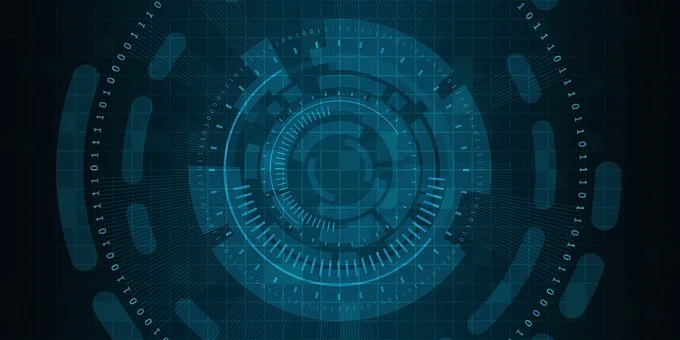Last Updated on June 8, 2024 by Asfa Rasheed
Technology can be difficult to define because it is such a broad term. It can be used to refer to anything from computers and cell phones to automobiles and airplanes. In general, technology is any tool, device or process that helps us do something better, faster or more efficiently. Keep reading to learn more about the different types of technologies and how they impact our lives.
What is technology?
Technology is often defined as the application of scientific knowledge to practical purposes. In other words, it is the use of science to solve real-world problems. Technology can be broken down into four main categories:
-Communication technology: This includes devices and methods used to communicate with each other, such as phones, email, and social media.
-Information technology: This involves the storing, processing, and retrieving of information, such as in databases and computer networks.
-Medical technology: This encompasses the various diagnostic and treatment procedures used in medicine, such as X-rays and MRIs.
-Transportation technology: This refers to the various methods used to move people and goods from one place to another, such as cars, trains, and airplanes.
The different types of technology
There is no single answer to the question “what is technology?” because there are so many different types of technology out there. From the most basic tools and machines to the most complex computer systems, technology can be found in nearly every aspect of our lives.
While it would be impossible to list all of the different types of technology here, we can provide a brief overview of some of the most common types:
Basic Tools and Machines: These include simple devices like hammers and screws, which are used to perform basic tasks.
Complex Computer Systems: These systems are used for everything from storing and retrieving information to processing data and controlling machinery.
Information Technology: This type of technology is used to manage and store information. Common examples include databases and computer networks.
Telecommunications: This type of technology facilitates communication between people or devices. Common examples include telephones, email, and the Internet.
The history of technology
Technology is often defined as the scientific or practical application of knowledge in the pursuit of a specific goal. This can be seen throughout the history of technology, from the development of simple tools and techniques to more complex systems and devices.
One of the earliest examples of technology is the use of fire for warmth and cooking. This discovery not only had a profound impact on human society, but also on the natural environment. By learning how to control fire, early humans were able to cook food and stay warm in colder climates.
Throughout history, there have been many other landmark inventions and discoveries that have had a significant impact on human society. These include things like the wheel, writing, gunpowder, and electricity. Each of these inventions has led to further advances in technology, which have then had an even bigger impact on our lives.
In recent years, technology has become increasingly commonplace in our everyday lives. From smartphones and laptops to streaming services and social media, it’s hard to imagine a world without technology. And as our reliance on technology grows, so does its impact on our lives.
While technology can be a great thing, it also has its downside. For example, too much time spent looking at screens can
Technology in the present day
Technology has become ubiquitous in the lives of people across the globe. It is hard to go a day without using some form of technology, whether it be a computer, smartphone, or even a simple toaster. Technology has become so ingrained in our lives that we often take it for granted, but what exactly is it?
At its most basic level, technology is the application of scientific knowledge to practical purposes. This can be seen in everyday items such as automobiles and microwaves, which are the result of technological advances. But technology is not just about material objects; it also includes processes and methods such as those used in manufacturing, communications, and medicine.
The impact of technology on our lives can be both positive and negative. On the positive side, technology has made our lives easier and more convenient. For example, we can now shop online, work from home, and keep in touch with friends and family all over the world with just a few clicks. On the other hand, technology can also be a source of distraction and addiction, leading to problems such as insomnia and obesity.
Technology is constantly evolving, and it can be difficult to keep up with the latest trends. However, understanding the basics of technology can help us
The future of technology
The future of technology is always changing and evolving. As new technologies are developed, they will have an impact on our lives. Some of the most promising and game-changing technologies that are currently in development include:
Augmented Reality (AR): This is a technology that allows users to overlay digital information onto the real world. AR has many potential applications, including education, entertainment, and marketing.
Virtual Reality (VR): This technology provides users with an immersive experience that can transport them to different environments or worlds. VR has potential applications in gaming, education, and healthcare.
Artificial Intelligence (AI): This technology involves creating intelligent machines that can learn and work on their own. AI has the potential to revolutionize many industries, including healthcare, finance, and manufacturing.
The impact of technology on our lives
Technology has had a profound impact on our lives in recent years, and this is only set to continue. From the way we communicate and work, to the way we live and play, technology is woven into the fabric of our lives.
Some people worry about the ever-increasing reliance on technology, and the potential for it to take over our lives. Others see it as a positive force that is making our lives easier, healthier and more connected.
There is no doubt that technology has revolutionised the way we live, but what exactly is it? And what does it mean for our future?
In its simplest form, technology is the application of scientific knowledge to solve problems. This can be anything from inventing a new type of light bulb, to creating a life-saving medical treatment. It’s also about finding new ways to do things, and making them better or faster.
Technology has always been with us – even in prehistoric times. Stone Age tools were simple technologies that allowed our ancestors to survive in a hostile world. Over time, they developed more sophisticated tools and weapons, which led to advances in hunting, agriculture and construction.
The Industrial Revolution was another major turning point in human history
Conclusion
Technology has become an integral part of our lives, and its impact is evident in all aspects of our daily existence. We rely on technology for everything from communication and entertainment to education and employment. While there are both positive and negative effects of technology on our lives, it is clear that the overall impact has been overwhelmingly positive. Technology has connected us with people and information from all over the world, made access to education more equitable, and provided us with new tools to improve our productivity. As we continue to develop new technologies, it is important to consider how they will impact our lives so that we can make the most of their potential.

